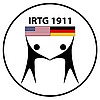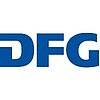B6 (2013 - 2016) – The impact of age on regulatory T cell-modulated vaccination against tuberculosis
Tuberculosis (TB) causes 2 million deaths per year and is increasingly difficult to treat because of multiple drug resistance. In addition, the existing live vaccine, Mycobacterium bovis BCG, lacks efficacy in most developing countries where the major burden of disease occurs. Hence, new vaccination strategies against Mtb are urgently needed. The mycobacterial cord factor Trehalose-6,6-dimycolate (TDM) and its synthetic analogue Trehalose-6,6-dibehenate (TDB) are effective adjuvants in combination with the subunit vaccine H1 (a fusion protein of Ag85B and ESAT-6) for immunization against Mtb infection in mice. After vaccination with H1 in TDB liposomes, protective immune responses during Mtb challenge are dependent on the IL-23 - IL-17A pathway. In young mice, Th17 immune responses are controlled by Treg cells, a specialized subset of CD4+ T cells, in an IL- 10- or a Stat3-dependent manner. Declining immune function is well described in the elderly and contributes significantly to an increased risk and severity of infection and impaired responses to vaccination. We and other labs have shown that Treg frequency dramatically increases in aged mice and humans, and contributes to the increased severity of a parasitic infection or cancer in aged. Concerning Treg suppressive mechanisms, previous studies suggest that aged Treg produce normal levels of IL-10 but they exhibit reduced Stat3 activation. Importantly, it is not clearly established whether Tregs can impact Th17 responses during aging, particularly in the lung. This question is highly significant, because aging enhances susceptibility to and severity of bacterial lung infections.
Aims:
- Determine if changes in Treg frequency affect the development of a vaccine-induced protective Th17 response in the lungs of young and aged mice.
- Analyze the mechanisms of Treg control of Th17 responses in the lung of old mice.
Publications:
Berod L, Stüve P, Varela F, Behrends J, Swallow M, Kruse F, Krull F, Ghorbani P, Mayer CT, Hölscher C, Sparwasser T. Rapid rebound of the Treg compartment in DEREG mice limits the impact of Treg depletion on mycobacterial burden, but prevents autoimmunity. PLoS One. 2014 Jul 22;9(7):e102804. PubMed PMID: 25050936.







